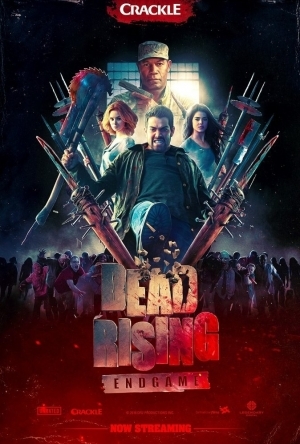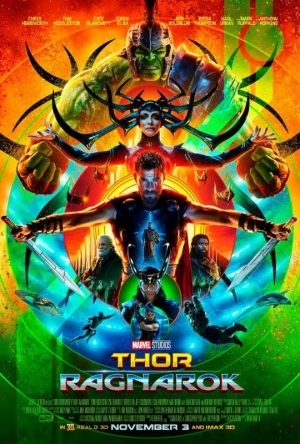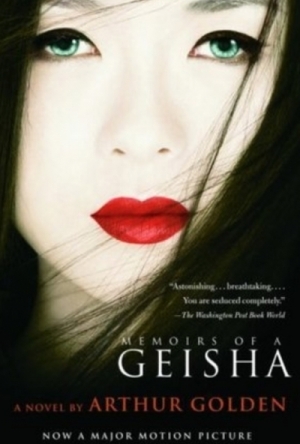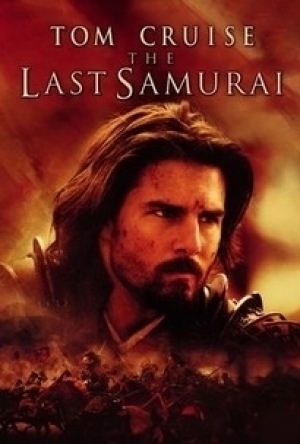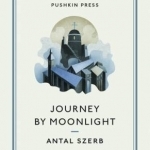
Journey by Moonlight
Antal Szerb, Len Rix and Eoin Ryan
Book
A major classic of 1930s literature, Antal Szerb's Journey by Moonlight (Utas es Holdvilag) is the...

Top Christmas Songs, Music & Carols with Lyrics: Holiday Edition
Music and Entertainment
App
"Voted No. 1 Christmas Music App in the AppStore!" "All Time Christmas Classics That Never Gets...
Becs (244 KP) rated Beasts of the Frozen Sun in Books
Sep 22, 2019
TRIGGER WARNINGS: war, violence, blood, gore, talk of sexual assault, child abuse, emotional abuse, animal violence, animal sacrifice, death of an animal, anger issues, arsony, death, murder, talk of drowning, absent parent, death of a parent, disowning, forced marriage, death of a sibling, manipulation, mind control, slavery, starvation, torture, trauma
REVIEW: First off, I want to say to not let all of those trigger warnings deter you from reading this breathtaking novel. Beasts of the Frozen Sun was extremely well-written and I will keep screaming this from the rooftops for as long as I am alive of how amazing this novel is.
Beasts of the Frozen Sun is loaded with badassery and brutally epic scenes. Also, that cover is one of the most beautiful covers I’ve ever seen. There was complexity to the world-building, relatable characters that you just can’t help but fall in love with, brutal wars and men as monstrous as some of the men in the world today. This fantasy novel was defiantly on the darker side, but it D E L I V E R E D ! And it delivered an immersive read that drowned you in the world until the very end.
Beasts of the Frozen Sun follows Lira, the heroine who is gifted from the gods and goddess’. This gift, the ability to read a person’s soul by just touching their chest, was used by others – mainly Lira’s father and uncle. But then a golden-haired giant washes ashore and Lira decides to help him heal. She hides him away and the two of them grow close, forming a bond that is forbidden by both of their clans. But then, the Dragon comes into the story and Lira is left fighting for her life, Reyker’s soul, and her people’s freedom.
Things I loved about Beasts of the Frozen Sun:
1. The main character being a badass heroine who gets angry when her sword is taken from her.
2. The love interest being a tough “bad boy” on the outside, but deep down he’s a big ole softie.
3. Gods/Goddess’ that walk the Earth with humans (even sometimes messing with them)
4. Magical powers that were once used for evil but now are used for good.
5. The whole ‘pretend to be sick so we can get close’ ordeal.
“Looking into his eyes was like gazing at the ocean – swirling shades of deep cobalt and steel gray. Fathomless. Familiar.”
When each of the characters were introduced, I was amazed at how spectacular, unique, and so very strong each of them were! Lira and Reyker’s bond was intense and absolutely addictive. They are literally EVERYTHING. The two are star-crossed lovers but also enemies to lovers and I NEED MORE OF THEM.
The world is out to keep them apart but the two are magnets. And nothing can keep them apart for very long, not even the world no matter how hard it tries too. Reyker is the beast. He was saved from drowning by Lira, who helped him heal by hiding him away. She teaches him her language and she stands by his side. Even when the rest of the world has chewed him up and spit him back out.
Lira battles with being used and caged. She hates feeling like “property” by her father and uncle. She also refuses to believe that Reyker isn’t worth saving. She is one badass heroine and I strive to be her. Smash these two together and you get one powerful couple!
I also want to take a moment to say that Quinlan has my heart and I need to see more of him in book 2 please dear author! I will pay you in my tears and heart if I have too.
“If I die in a cage tomorrow, or I die in a cage in ten years – what is the difference? A cage is not a life.”
The world-building in Beasts of the Frozen Sun was… OMG seriously some of the best I’ve ever read. With history, there is always brutality and this novel does include that. Death, torture, the treatment of woman were all horrible and at times a bit hard to read but Jill Criswell has such raw talent at describing things that she does an amazing job writing those style of scenes. And with this being a story set back in history, those themes are inevitable. But each theme included, made Beasts of the Frozen Sun seem more and more realistic with each passing page.
The plot of this novel is everything!! Wars to villages raids to snuggles between Lira and Reyker. There was never a boring moment within Beasts of the Frozen Sun. It was packed with so much intensity that at times, it left you a bit exhausted. The plot was also dark and brutal but it fit with the story. This was a bloody amazing action-packed novel of magic and redemption, high stakes and brutal fights, powerful woman and monstrous men.
I am on my first ever book hangover. That ending… Jill Criswell is a cruel woman to leave me hanging in the way she did. But OHMAGAWD, I CAN NOT WAIT for book two of this series. Please, if you only ever pick up one book that I recommend, please please please pick this amazing novel up!
“When that dark womb of stillness engulfed him, he embraced it with a flood of relief. Reyker welcomed whatever torments waited him on the other side of this world, knowing it was nothing less than he deserved.”
365Flicks (235 KP) rated Dead Rising: Endgame (2016) in Movies
Nov 20, 2019
Based on the worldwide smash-hit video game series, Dead Rising: Endgame is the sequel to Dead Rising: Watchtower. Directed by Pat Williams (Continuum), written by Michael Ferris (Terminator Salvation) and Tim Carter (Mortal Kombat: Legacy) and starring Jesse Metcalfe, Marie Avgeropoulos and Dennis Haysbert.
Journalist Chase Carter Heads back into a quarantine zone to find the truth as to what happened to his partner. He and a small group of Journalists want to expose the creators of the outbreak. What he is going to find is a huge cover up that is going to threaten everything. General Lyons (Dennis Haysbert, President Palmer in 24 “Yaaaay”), is a Military officer who will never let anyone get in his way. Racing against the clock, Chase and crew must slice, hack and use any weapon at there disposal to find there way through the zombie hordes and out of the quarantine zone.
I really couldn’t figure out where I stood with this movie at first. I felt like I maybe should of been on the side of thinking it was hot trash. However the Dialogue all though Cheesy at times suits the world its in. The acting although not exactly Andrew Lincoln levels is pretty damn good for this type of flick. Budget and effects wise I had no complaints you could see they hadn’t cheaped out on the practical or the FX on the Zombies they were genuinely scary and brought a certain amount of originality.
I would recommend you see this movie. Go into expecting a fun action packed romp of a movie. Brad Pitts World War Z this movie is not, Zack Snyder’s Dawn of the Dead Remake this movie also is not, but the best thing is that it knows its not those movies, it knows its a Dead Rising tie-in and it brings all of that together in this glorious fun time at the movies. Who knew Jesse Metcalfe was a total Bad Ass????

Warhammer: Vermintide 2
Video Game Watch
Vermintide is back – darker, bloodier and more intense than ever! Warhammer: Vermintide 2 is...
action warhammer
Charlie Cobra Reviews (1840 KP) rated the PlayStation 4 version of Kingdom Hearts III in Video Games
Jul 7, 2020
Set after the events of Kingdom Hearts 3D: Dream Drop Distance and a sequel to Kingdom Hearts II; it's a conclusion to the "Dark Seeker Saga" and finds Sora and friends trying to prevent a second Keyblade War. Their search for the seven guardians of light has them visit worlds and cross paths with many different Disney and Pixar characters. Sora, nearly taken over by Xehanort, discovers he has lost his strength as a result. He resumes his travels accompanied by Donald and Goofy, in order to regain his "power of waking'. Traversing the realm of darkness, King Mickey and Riku search for Aqua while Kairi and Lea train to with their new Keyblades.
This game is a lot of fun. I never got to play the other Kingdom Hearts games so this was my first introduction to the series. I really liked the gameplay although sometimes the enemies are nothing more than canon fodder. But it was awesome with interacting with all the Disney and Pixar characters and seeing some of their worlds. I was very confused with the story but it goes by pretty well and there are lots of videos and pages on the internet if you want to catch up or dont remember what's going on or who's who. I didn't include some of the gameplay that showed boss fights because I didn't want to give anything away but the boss fights are a lot of fun. I just had the game on normal so I haven't found it very hard but I dont know if that stays the same if you increase the difficulty. You do have the options of changing gear for your allies and having the group eat meals for buffs as well as upgrade your keyblades but I generally stay away from that unless I have difficulty on a stage or boss. One thing I really didn't like so much was the spaceship battles that you get when traveling from world to world, I found them a bit tedious and annoying. But I'm sure some people liked them. All in all I'd give this game a 7/10. Below is a link to a video showcasing gameplay that I posted to YouTube.
Movie Metropolis (309 KP) rated Thor: Ragnarok (2017) in Movies
Jun 10, 2019 (Updated Jun 10, 2019)
It’s unfortunate then that he’s been lambasted with the weakest solo films of the entire series, the son of Odin really has deserved much better.
Thor’s inception in the first of his three solo outings was a competent if unremarkable origins story and the less said about Thor: The Dark World, which remains the poorest film of the entire MCU, the better. Now, just in time for Infinity War,Thor: Ragnarok rolls into cinemas. But does it do its leading man justice?Imprisoned on the other side of the universe, the mighty Thor (Hemsworth) finds himself in a deadly gladiatorial contest that pits him against the Hulk (Bruce Banner), his former ally and fellow Avenger. Thor’s quest for survival leads him in a race against time to prevent the all-powerful goddess of death, Hela, (Cate Blanchett) from destroying his home world and the Asgardian civilisation.
This third film for our mighty Avenger is really something. A film more akin to Guardians of the Galaxy than its overly stuffy predecessors. Director Taika Waititi in his first big-budget feature has managed what many had thought was impossible, he’s given Thor a rather brilliant movie.
But how? Well, he’s realised what no-one else has. The premise surrounding our titular hero is utterly ridiculous. Rather than shy away from that and create something serious, he’s embraced it with humour, music and my goodness, a lot of colour.
If you thought Guardians of the Galaxy used every colour on the spectrum, you ain’t seen nothing yet. Thor: Ragnarok is quite something to watch. From the gold-tipped spears of Asgard that glisten like never before, to the trash-topped planet of Sakaar, everything is dripping in colour.
“Casting Goldblum in the role of an immortal game-player really is an inspired choice.”
Speaking of Sakaar, it contains one of the MCUs best new additions: Jeff Goldbum. Sorry, I mean the Grandmaster. Casting Goldblum in the role of an immortal game-player really is an inspired choice. The 65-year-old legend has made a career on playing himself and it works exceptionally well here. His improvisation is absolutely spot on.
Ragnarok throws up a few other surprises too. One being that Chris Hemsworth is absolutely hilarious. He and Tom Hiddleston bounce off each other incredibly well and we see real chemistry – the chemistry that should have been evident from the start. Cate Blanchett also turns the cheese up to 11 as the latest throwaway Marvel villain, Hela.
She fares better than the majority of Marvel villains and is certainly more interesting than Christopher Eccelston’s, Malekith, but they never quite make the impact that the scriptwriters were clearly looking for. Nevertheless, Blanchett is excellent.
Thankfully, Thor: Ragnarok doesn’t suffer from the absence of Natalie Portman’s dull Jane Foster, and though she is referenced early on, newcomer Tessa Thompson as Valkyrie provides a fitting replacement and possible future love-interest for our intrepid hero.
Unfortunately, it’s not all good news. Surprisingly the first 30 minutes feel incredibly rushed as numerous loose storylines are brought together and the improvised nature of the script lends itself to a little too much humour. Yes, we get it, Marvel films are funny, but this should not be at the expense of the more emotional sequences that the movie tries to put across.
Nevertheless, Thor: Ragnarok is a resounding success, created by a man who clearly has a passion for this corner of the MCU. He manages to make an absolutely preposterous film – and that’s exactly how Thor should be. Take a bow Mr. Waititi.
A little tip – there are two end credit sequences waiting for you. You’re welcome.
https://moviemetropolis.net/2017/10/26/thor-ragnarok-review/
The Bandersnatch (199 KP) rated Memoirs of a Geisha in Books
Nov 7, 2019
My opinion of the book is one of both curiosity and interest. Japan is one of those countries where its history and culture is both unusual and mysterious. The book gives a brief glimpse into the hidden world of the Geisha which are a prominent spot in Japanese culture but are relatively unknown world wide. I believe that the story of Sayuri is one of personal travel and evolution. Since we see Sayuri';s experience as a child before becoming a Geisha, experiencing the horror of war and eventually finding love with the Chairman.
Arthur Golden was born on December 6th 1956 in Chattanooga, Tennessee. When he was eight years old his parents divorced with his father dying five years later. He spent most of his childhood living in lookout mountain, Georgia before graduating from the Baylor school in Chattanooga in 1974. After earning a degree in Fine art (Specifically Japanese art), an M. A. in Japanese history, Golden spent a summer at the Peking University in Beijing and spent some time working in Tokyo. When he returned to the states he earned an M. A. in English at Boston University. Golden married Trudi Legge and they went on to have two children Hays and Tess.
After getting the initial idea for Memoirs of a Geisha Golden spent six years over the story rewriting it at least three times, changing the view point until settling on the viewpoint of Sayuri. Golden had spent time interviewing several Geisha including Mineko Iwasaki (who ended up suing Golden when the Japanese version of the book came out for breach of contract.....the case was settled out of court in 2003) all of whom provided information about the world of the Geisha. After its release Memoirs of a Geisha spent two years on the New York Times bestseller list, its sold more than four million copies in English alone and has been translated into thirty-two languages around the world. In 2005 the book was made into a movie garnering three academy awards.
My opinion of Arthur Golden is very small and somewhat limited.......I believe he is a fantastic writer and very knowledgeable about Japanese history and art....Much more so than I am but hearing he faced being sued because of citing who his sources were when he was contracted not to has put something of a dampener on his character in my eyes.
Memoirs of a Geisha was released as a Movie on December 9th 2005 under director Rob Marshall and Produced by Steven Spielberg's production Company Amblin Entertainment and Spyglass Entertainment. With its production from pre- to post-production taking place mainly in California US, with a few spots filmed in Kyoto Japan. The movie received mixed reviews in the western world and received somewhat negative reviews in Japan due to its mixed casting of Chinese and Japanese actors and actresses and its relationship to history. Despite the chaos they won three Academy Awards (Best Art Direction, Best Cinematography and Best Costume Design), a Golden Globe (Best Original Score), A national Board of review (Best Supporting Actress), a satellite award (Outstanding screenplay) and three BAFTA's (Cinematography, Costume design and the Anthony Asquith award for Achievement in film music).
Whilst I quite like the movie I definitely feel that if more effort was put into tying more of both Japanese and Geisha history was some how tied into the movie. As well as using more Japanese Actors and actresses in the roles......despite that I believe the actors and actresses did a very good job in brining the script to life and keep a layer of mystery and fluidity to their roles.
And there you have it a book for all the ages, its definitely under the banner of AWESOME!!!.

The Complete Adventures of Pan (Books 1-7)
Book, Education and Stickers
App
Includes ALL 7 BOOKS of Complete Series The Adventures of Pan (#1 Best Seller in App Store Kids &...
Ryan Hill (152 KP) rated The Last Samurai (2003) in Movies
Jun 23, 2019
In the role of Algren, Cruise begins a dejected man living out of a bottle, bereft of purpose & suffering post-Civil War nightmares of a man touted as a hero despite feeling the guilt of slaughtering Indians crushed under the might of a military machine; in that sense, The Last Samurai is very anti-war in its message, John Logan's story painting the Americans and specifically the Imperialist Japanese not in the greatest light. Cruise takes Algren on a traditional voyage of discovery, first pitted against the samurai code & eventually becoming consumed by it, consumed by the similarity of the way of the warrior between both cultures - and Ken Watanabe's dignified samurai 'rebel' Katsumoto learns from him, as well as the other way around, with Cruise remaining stoic & only getting flashes of a chance to display the usual Cruise charm, but that's OK - Algren isn't the kind of character to benefit from that, Cruise's natural magnetism is enough here. Wit is provided thankfully through, albeit briefly, Billy Connolly as a tough old Irish veteran & chiefly Timothy Spall as our portly 'narrator' of sorts, who serves to help mythologise Algren & the legend itself. Zwick is most concerned with that, you see, the idea of legends and how men become them, exploring that concept alongside digging into the cultural rituals and practises of a changing Japan.
Algren's story is placed at a time when the old ways of Japan were shifting, under the pressures of global politics & business; the Emperor here is a naive young man, sitting on an empty throne, looking to Watanabe for validation as his advisor's push to quash a rebellion fighting to preserve the old ways, preserve Japanese interests as America knocks on the door. That's why Cruise's role here is so interesting, his character learning of the samurai code & helping those around him remember their history, and Zwick explores well the concept of national identity alongside personal ideas of myth, legend & destiny. It all boils together in a careful script, never overblown, which neatly develops the relationships involved & helps you fully believe Algren's transformation into the eponymous 'last samurai'. Along the way, Zwick doesn't forget theatrics - staging plenty of well staged & intense fight scenes which utilise the strong Japanese production design, before building to a quite epic war climax with army pitted against army, with personal stakes cutting through it, backed up indeed by another superlative score by Hans Zimmer. It becomes more than just a historical swords & armour film, reaching deeper on several levels.
What could have been a slow paced, potentially ponderous movie is avoided well by Edward Zwick, who with The Last Samurai delivers one of the stronger historical adventure epics of recent years. Beautifully shot in many places, with some excellent cinematography & production standards, not to mention an impressive script well acted in particular by Tom Cruise & Ken Watanabe, Zwick creates a recognisably Hollywood picture but for once a movie that doesn't dumb down, doesn't pander and ultimately serves as an often involving, often damn well made story. Especially one to check out if you love the way of the samurai.

